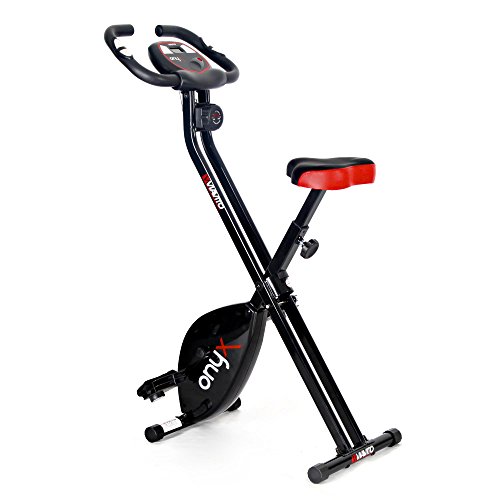The Most Hilarious Complaints We've Seen About Exercise Cycle Home
Exercise Cycle Home: A Comprehensive Guide to Fitness in the Comfort of Your Space
In the ever-evolving landscape of fitness, the home exercise cycle has become a versatile and efficient tool for preserving physical health and psychological wellness. As more people look for practical and accessible methods to stay fit, the exercise cycle has ended up being a popular option for those who choose the comfort and personal privacy of their own homes. This article digs into the benefits, types, and tips for using an exercise cycle at home, together with some regularly asked questions to help you make an informed decision.
The Benefits of Using an Exercise Cycle at Home
Convenience and Accessibility
- Among the most substantial advantages of owning an exercise cycle is the convenience it offers. You can work out anytime, regardless of the weather condition or your schedule. This makes it much easier to maintain a consistent fitness regimen without the requirement to travel to a gym.
Cost-efficient
- While the preliminary financial investment in an exercise cycle might seem high, it can be more affordable in the long run compared to gym subscriptions and travel expenses. Furthermore, lots of cycles featured features that can replace the need for multiple tools.
Low-Impact Exercise
- Cycling is a low-impact activity, making it suitable for people of any ages and fitness levels. It is particularly beneficial for those with joint pain or injuries, as it offers a gentle way to stay active without putting extreme stress on the body.
Cardiovascular Health
- Regular cycling can enhance cardiovascular health by enhancing the heart and lungs. It assists to reduce high blood pressure, lower the risk of cardiovascular disease, and improve general endurance.
Mental Health Benefits
- Exercise, in basic, is understood to enhance mental health by reducing tension, stress and anxiety, and anxiety. Cycling, in particular, can be a meditative and satisfying activity, offering a sense of accomplishment and wellness.
Types of Exercise Cycles
Upright Bikes
- Upright bikes are the most common kind of exercise cycle and carefully resemble conventional bicycles. They use a variety of resistance levels and are suitable for a large range of exercises, from mild pedaling to extreme interval training.
Recumbent Bikes
- Recumbent bikes include a reclined seating position and are frequently advised for people with back pain or those who choose a more unwinded workout. They offer exceptional support and are much easier on the joints.
Spin Bikes
- Spin bikes are created for high-intensity workouts and are often utilized in spin classes. They include heavy flywheels and adjustable resistance, permitting a more dynamic and challenging ride.
Smart Bikes
- Smart bikes are connected to the internet and can stream live or on-demand classes. Exercise Bike come with interactive functions, such as virtual paths and efficiency tracking, making the workout experience more appealing and inspiring.
Tips for Using an Exercise Cycle in your home
Establish Your Space
- Select a well-ventilated location with sufficient area to walk around the bike. Guarantee the flooring is steady and think about using a mat to safeguard it from sweat and vibrations.
Change the Bike
- Effectively change the seat height and handlebars to ensure a comfortable and ergonomic position. The seat needs to be level, and your legs must be somewhat bent at the bottom of the pedal stroke.
Heat up and Cool Down
- Always begin with a 5-10 minute warm-up at a low resistance to prepare your muscles and joints. Similarly, cool down with a mild ride and extending to prevent stiffness and pain.
Stay Hydrated
- Keep a water bottle within reach and beverage regularly during your workout to stay hydrated. This is particularly essential for longer or more extreme sessions.
Blend Your Workouts
- To prevent dullness and plateaus, differ your exercises by integrating different resistance levels, intervals, and durations. Consider utilizing apps or online classes to keep your regular fresh and challenging.
Frequently Asked Questions (FAQs)
Q: How often should I utilize an exercise cycle?
- A: The frequency of your workouts depends on your fitness goals and schedule. For basic fitness and health, go for 3-5 sessions per week, each lasting 20-60 minutes.
Q: Can I lose weight with an exercise cycle?
- A: Yes, cycling can be a reliable way to burn calories and slim down. Integrate it with a balanced diet and other forms of exercise for the very best outcomes.
Q: Are exercise cycles suitable for all fitness levels?
- A: Yes, exercise cycles can be gotten used to accommodate different fitness levels. Newbies can begin with low resistance and much shorter durations, while more sophisticated users can increase the intensity and duration of their workouts.
Q: How do I select the ideal exercise cycle?
- A: Consider your fitness objectives, spending plan, and offered space. Upright bikes are versatile and space-efficient, recumbent bikes are more comfy, and spin bikes are ideal for high-intensity workouts. Smart bikes provide the included benefit of connection and interactive functions.
Q: How do I keep my exercise cycle?
- A: Regular maintenance is important to guarantee the durability and efficiency of your bike. Tidy it after each usage, oil the chain (if relevant), and look for any loose parts or signs of wear and tear.
An exercise cycle is a valuable addition to any home gym, providing a hassle-free, cost-effective, and versatile way to stay fit. Whether Exercise Bikes UK are a fitness enthusiast or a novice, there is an exercise cycle that can fulfill your requirements and assist you accomplish your health and health goals. By following Exercise Bike and standards laid out in this article, you can take advantage of your home cycling experience and delight in a much healthier, happier life.
